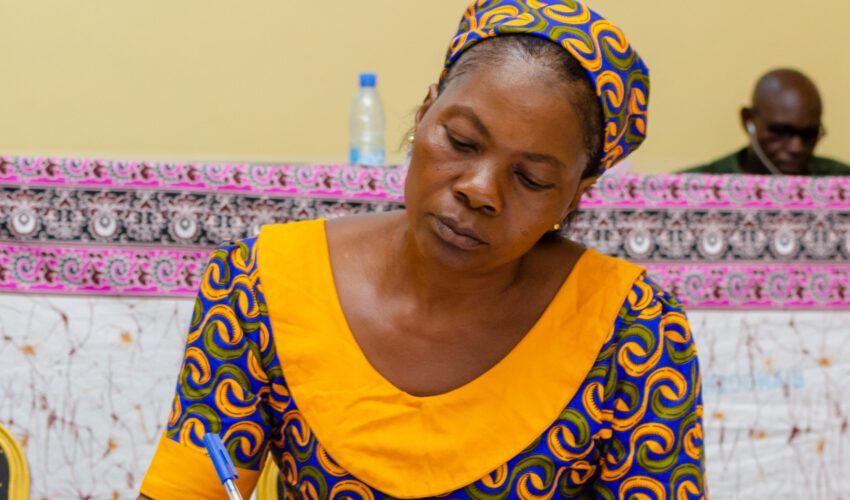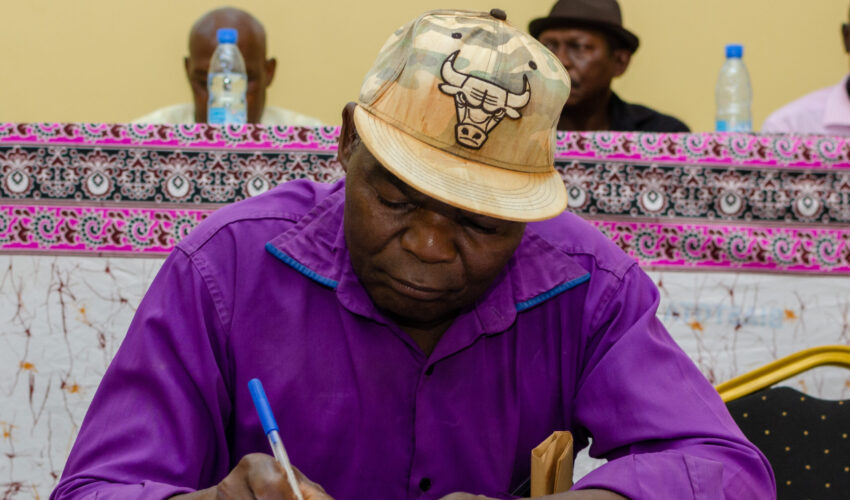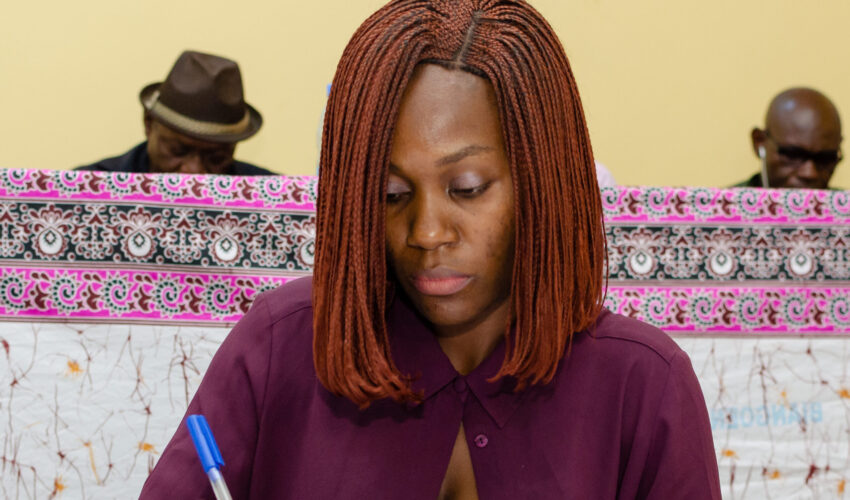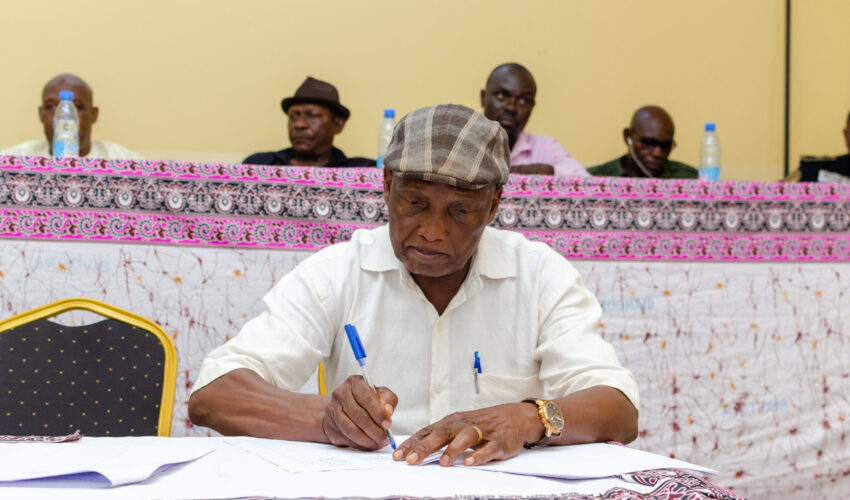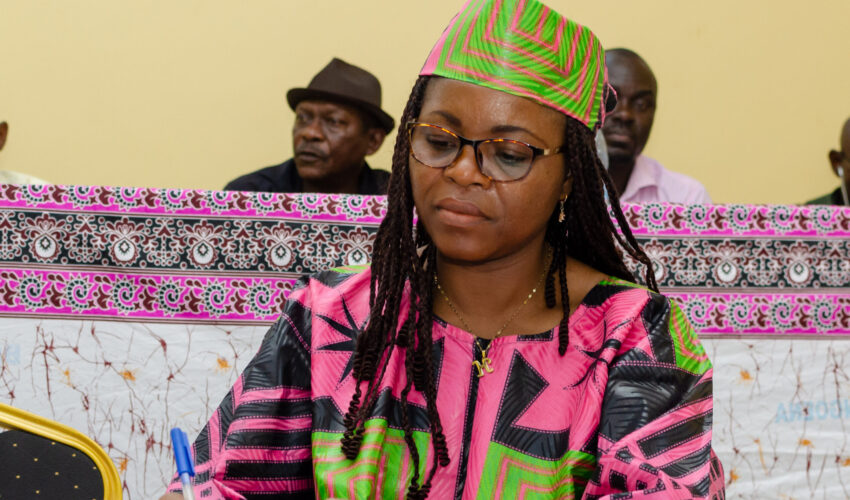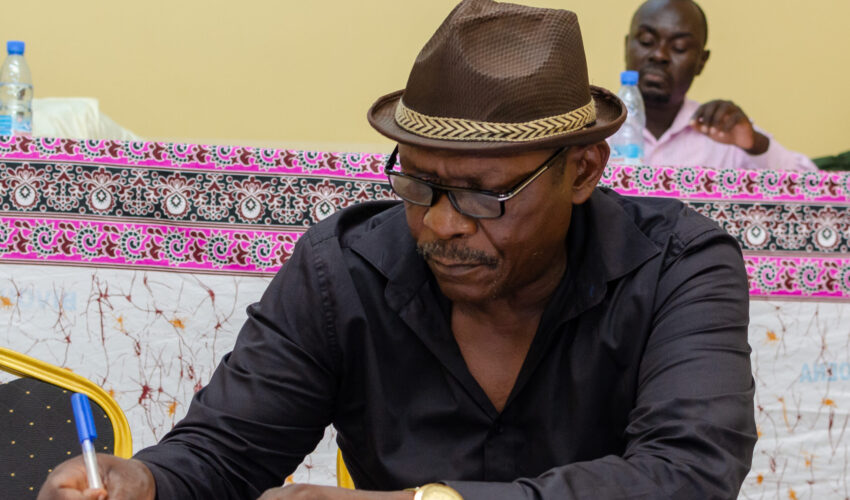Public institutions, the private sector and civil society have signed an agreement under which they intend to contribute to the development of a sustainable, low-carbon economy, by encouraging the protection and restoration of forests, and promoting the social and financial inclusion of populations.
1 August 2023, Ntui (Cameroon) – A memorandum of understanding to help implement the objectives of “Sustainable Production – Protection and Restoration of Forests – and Financial, Social and Economic Inclusion” (abbreviated to PPI agreement), was signed between the commune of Ntui, public sector, private sector actors, technical and financial partners and civil society organizations, a process facilitated by IDH.
The agreement also aims to support the implementation of the 2023-2026 communal development plan of the commune of Ntui in the Centre Region of Cameroon, Mbam & Kim District.
According to Joël Martin Atangana Owona, IDH’s Program Manager:
IDH’s role is to bring together local stakeholders and support them in the development and implementation of sustainable development objectives, particularly in the agricultural sector. This initiative builds on the decentralization process underway in Cameroon, as well as on the private sector.
After signing the document, deputy mayor of Ntui, Avoré Simbé further explained:
The present agreement aims to help develop economic activities in the commune, in particular agricultural activities, while contributing to the conservation of our forests.
Concretely the agreement includes provision of support to more than 3,000 cocoa farmers in Ntui, including 430 women, to produce cocoa beans more sustainably while complying with European Union regulation on deforestation, and intends to increase cocoa production by 30% by 2030. The project also aims to increase annual citrus production by 30% by 2026, from 50,000 tonnes to 75,000 tonnes. The same applies to yam, with a targeted increase of 50%.
The Agreement also provides objectives for reducing the current rate of deforestation and for protecting and restoring the galleries of 17,070 ha of degraded community forests, by planting at least 300 000 trees. In 2024, up to 04 community forest management committees will have to be trained to collect data on climate change, so as to create a reliable local network for collecting and transmitting this data at the national level.
As for the economic, social and financial inclusion, the plan is to, among others to provide technical assistance to 40 cooperative societies and 10 Joint Initiative Groups on business entrepreneurship by 2026. The program also includes a commitment to raising awareness about child labour, as well as supporting women’s economic activities.
Marguerite Ntsama, representative of the Kombé, Yallongo and Bikong Community Association (Ascokyb), which benefits from a project co-financed by IDH and Cargill/Telcar Ltd, is satisfied. After signing on behalf of the women’s association, she said:
We’re happy because thanks to IDH, we’ve been able to get together to ask our village chief for some land and he gave us 100 hectares. We’re going to grow our own crops and make a profit.
“For Cargill/Telcar Cocoa Ltd , this is another way of renewing our commitment to supporting producers in developing and improving cocoa production, in particular by implementing agroforestry, so that producers can earn a more stable income, while preserving the forests”, explains Patricia Djofang Tchuinang, Forestry and Environment Supervisor at Cargill / Telcar Cocoa Ltd, a signatory of the Ntui PPI.
Background
The Ntui “Sustainable Production – Forest Protection and Restoration – and Financial, Social and Economic Inclusion” agreement was signed as part of the implementation of the Green Commodity Landscape Program (GCLP). In Ntui, the program is facilitated by IDH, with the support of Cargill/Telcar Cocoa Ltd, TJC, AMS, Youth Representative, Ossombe Women’s Association in charge of non-timber forest products, sectorial Ministries (Agriculture and Rural Development; Trade; Environment; Nature Protection and Sustainable Development; Forestry and Wildlife) Chamber of Commerce, Industry, Mines and Crafts of Cameroon, Youth of the Interprofessional Council of Cocoa and Coffee, National Cocoa and Coffee Board, National Observatory on Climate Change, Cocoa Coops, Cassava associations and Citrus Cooperatives of Ntui.
The GCLP brings together key stakeholders to co-design and jointly implement actions that help protect forests, improve sustainable production of cocoa and other crops and enhance livelihoods for farmers and surrounding communities in the Grand Mbam landscape. The GCLP aims to support implementation of the Roadmap to Deforestation-free Cocoa, a commitment between the government of Cameroon, cocoa sector companies, and civil society organizations to end cocoa-related deforestation in Cameroon.
Signing the PPI Agreement
